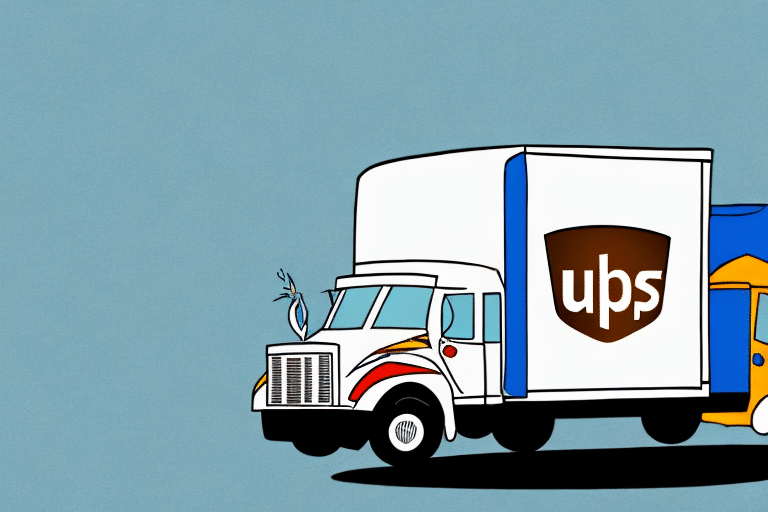Is UPS Cheaper Than USPS?
For many individuals and businesses, shipping is a vital part of their daily routine. Whether you're sending packages to your customers or receiving merchandise from your suppliers, choosing the right shipping carrier is crucial. Two of the most widely used shipping options in the United States are UPS and USPS. The question many ask is: Is UPS cheaper than USPS?
Overview of USPS and UPS
United States Postal Service (USPS)
The United States Postal Service (USPS) was formed in 1971 and has been providing affordable shipping services ever since. The USPS offers a range of services, including First-Class Mail, Priority Mail, and Priority Mail Express. They also offer services like certified mail, registered mail, and international shipping. One of the best things about USPS is that it offers free package pick-up, making shipping even easier for businesses.
Additionally, USPS has implemented several eco-friendly initiatives to reduce its carbon footprint. The organization has introduced alternative fuel vehicles, such as electric and hybrid trucks, to its fleet. It has also implemented energy-efficient practices in its facilities, such as using LED lighting and installing solar panels. These efforts have not only helped the environment but have also saved the organization millions of dollars in energy costs.
United Parcel Service (UPS)
UPS is one of the largest shipping carriers in the world, offering a wide range of services like ground shipping, express shipping, and international shipping. They also have an extensive network of drop-off locations and an excellent tracking system. One of the significant advantages of using UPS is that they offer guaranteed delivery dates, which is ideal for businesses that have time-sensitive shipments.
UPS has also implemented eco-friendly initiatives, such as using alternative fuel vehicles, optimizing delivery routes, and investing in renewable energy. However, it's worth noting that UPS has faced criticism for their labor practices, including long working hours and low wages for their drivers.
Pros and Cons of USPS and UPS
Pros of USPS
- Affordable rates, especially for small and lightweight packages.
- Free package pick-up services.
- Flat rate boxes that can be cost-effective for heavy items.
- Extensive network of post offices and drop-off locations.
- Eco-friendly initiatives reducing environmental impact.
Cons of USPS
- Tracking system is less robust compared to UPS.
- Lack of guaranteed delivery dates for some services.
- Limited international shipping options.
- Potential delays in delivery times, especially for international shipments.
Pros of UPS
- Guaranteed delivery dates, ideal for time-sensitive shipments.
- Comprehensive tracking system.
- Wide range of shipping services, including international options.
- Eco-friendly practices enhancing sustainability.
- Excellent customer service with dedicated support.
Cons of UPS
- Higher rates, especially for small and lightweight packages.
- Potential additional costs for certain services.
- Criticism over labor practices which may concern ethically-minded businesses.
Shipping Costs and Rates
Understanding Shipping Costs
When it comes to shipping, rates vary based on factors such as package weight, size, destination, and delivery speed. Both UPS and USPS provide rate calculators on their websites, allowing you to estimate the cost of your shipment accurately.
Generally, UPS may be more costly for smaller packages, while USPS might be more expensive for larger packages and international shipments.
Comprehensive Rate Comparison
According to data from UPS Rate Calculator and the USPS Shipping Calculator, UPS often offers competitive rates for heavier and international shipments, whereas USPS provides more economical options for lightweight and domestic packages.
- UPS: Better rates for packages over 70 lbs and extensive international coverage.
- USPS: More affordable for packages under 70 lbs and offers free flat rate boxes.
Factors Affecting Shipping Prices
- Package Weight and Size: Heavier and larger packages cost more to ship.
- Destination: Domestic shipping is generally cheaper than international.
- Delivery Speed: Expedited services cost more than standard shipping.
- Additional Services: Insurance, signature confirmation, and special handling can add to the cost.
Shipping Services and Options Offered
UPS Shipping Options
- UPS Ground: Reliable for non-urgent, domestic shipments.
- UPS Next Day Air: Guarantees next-day delivery.
- UPS 2nd Day Air: Delivers within two business days.
- UPS Worldwide Express: Fast international shipping with guaranteed delivery dates.
USPS Shipping Options
- First-Class Mail: Affordable for lightweight packages up to 15.99 oz.
- Priority Mail: Delivers within 1-3 business days with flat rate options available.
- Priority Mail Express: Fastest USPS service with overnight delivery to most locations.
- International Shipping: Services like Global Express, Priority Mail International, and First-Class Package International.
Tracking and Insurance
Both UPS and USPS offer tracking services to monitor the status of your shipments. UPS provides a more detailed and real-time tracking system, which can be crucial for high-value or time-sensitive shipments. USPS offers tracking for most services, but the updates may not be as frequent or detailed as UPS.
In terms of insurance, UPS generally offers more comprehensive coverage options, which can be beneficial for shipping valuable or fragile items. USPS also provides insurance, but the coverage limits and terms may differ.
Choosing the Right Carrier for Your Business
Assessing Your Shipping Needs
Choosing the right shipping carrier depends on several factors specific to your business:
- Shipping Volume: High-volume shippers may benefit from UPS's negotiated rates and services.
- Package Size and Weight: UPS is often more cost-effective for larger and heavier packages, while USPS excels with smaller, lighter shipments.
- Delivery Speed Requirements: If you need guaranteed delivery dates, UPS offers more reliable options.
- Destination: For international shipments, UPS provides a broader range of services and better tracking.
- Budget Constraints: USPS typically offers more affordable rates for budget-conscious businesses, especially for domestic shipping.
Business Size Considerations
Small businesses may find USPS more affordable for regular, small-package shipping due to free flat rate boxes and lower overall costs. Conversely, larger businesses with higher shipping volumes and a need for more robust tracking and guaranteed delivery may prefer UPS.
Real-Life Scenarios
- International E-commerce: A business selling products overseas may prefer UPS for its extensive global network and reliable delivery times.
- Local Artisan: A small local shop shipping handmade goods within the country might benefit from USPS's affordable rates and flat rate shipping options.
Money-Saving Strategies
Compare Rates and Services
Regularly compare the rates and services offered by UPS and USPS to find the most cost-effective option for each shipment. Use their online calculators to estimate costs based on package details.
Negotiate Rates
For businesses with high shipping volumes, negotiating rates directly with UPS or USPS can lead to significant savings. Inquire about business accounts and bulk shipping discounts.
Use Third-Party Shipping Services
Consider using third-party shipping platforms like ShipStation or EasyPost which can provide discounted rates and streamline shipping processes.
Take Advantage of Flat-Rate Boxes
USPS offers flat-rate boxes that allow you to ship items of any weight for a fixed price. This can be a cost-effective solution for shipping heavier items domestically.
Optimize Packaging
Properly size and package your items to avoid unnecessary dimensional weight charges. Using the right size box and packing materials can reduce shipping costs and prevent damage.
Conclusion: Is UPS Truly Cheaper Than USPS?
When comparing UPS and USPS rates, there is no one-size-fits-all answer as the cost depends on various factors such as package size, weight, destination, and delivery speed. UPS may be cheaper for certain package sizes and international shipments, while USPS might offer more affordable rates for small, domestic packages. It's essential to evaluate your specific shipping needs, compare the rates and services of both carriers, and choose the one that aligns best with your business requirements and budget.






















